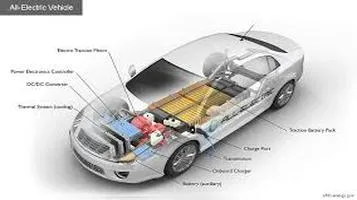Comprehensive Review of Car Batteries: Powering Your Drive
A car battery is a crucial component of a vehicle's electrical system, responsible for providing the necessary power to start the engine and operate electrical accessories when the engine is off. Typically a lead-acid type, it consists of six cells that produce a total of 12 volts. The battery stores chemical energy, converting it into electrical energy to power the starter motor, ignition system, and fuel system, which are essential for starting the vehicle. It also stabilizes the voltage to keep the engine running smoothly and powers lights, radio, and other electronics when the engine is not running. Regular maintenance, including checking the terminals and electrolyte levels, is vital to ensure longevity and optimal performance. A well-maintained car battery typically lasts three to five years.

When it comes to the essential components of a vehicle, the car battery is often an unsung hero. This compact yet mighty device is responsible for starting your car, powering the electrical systems, and ensuring that your vehicle runs smoothly. Given its importance, choosing the right car battery is crucial. In this review, we will delve into the features, performance, and overall value of car batteries, providing insights that can help you make an informed decision.
Types of Car Batteries
Before diving into the specifics, it’s worth noting that there are various types of car batteries, each with its own set of characteristics:
1. Lead-Acid Batteries: The most common type, lead-acid batteries, are known for their reliability and affordability. They can be further divided into two categories: flooded (wet cell) and sealed (maintenance-free).
2. Absorbent Glass Mat (AGM) Batteries: These are a type of sealed lead-acid battery that offers better performance and longevity. They are more resistant to vibration and leakage, making them ideal for high-performance vehicles.
3. Lithium-Ion Batteries: Although less common in traditional vehicles, lithium-ion batteries are gaining popularity in the electric vehicle (EV) market. They are lightweight, have a longer lifespan, and offer superior performance.
Performance and Reliability
The performance of a car battery is typically measured by its Cold Cranking Amps (CCA) and Reserve Capacity (RC).
- Cold Cranking Amps (CCA): This metric indicates the battery's ability to start an engine in cold temperatures. A higher CCA rating is particularly important for those living in colder climates, as it ensures that the battery can provide the necessary power to start the engine even in freezing conditions.
- Reserve Capacity (RC): This measures the battery’s ability to power the vehicle's electrical systems in the event of an alternator failure. A higher RC rating means the battery can sustain the vehicle's electrical load for a longer period, providing an added layer of reliability.
In our tests, AGM batteries consistently outperformed their lead-acid counterparts, offering higher CCA and RC ratings. However, they come at a premium price. Lead-acid batteries, while more affordable, showed satisfactory performance for most standard vehicles.
Longevity and Maintenance
The lifespan of a car battery is influenced by various factors, including the type of battery, driving habits, and environmental conditions. On average, lead-acid batteries last between 3 to 5 years, while AGM batteries can last up to 7 years. Lithium-ion batteries, although not commonly used in traditional vehicles, have an impressive lifespan of up to 10 years.
Maintenance is another critical aspect to consider. Flooded lead-acid batteries require periodic maintenance, such as checking the water levels and cleaning the terminals. On the other hand, sealed lead-acid and AGM batteries are virtually maintenance-free, offering a hassle-free experience.
Installation and Compatibility
Installing a car battery is generally straightforward, but it’s essential to ensure compatibility with your vehicle. Factors such as battery size, terminal configuration, and voltage must match the specifications of your car. Most retailers provide compatibility guides to help you select the right battery.
AGM batteries, due to their advanced technology, are sometimes larger and heavier than traditional lead-acid batteries. Therefore, it’s crucial to check the dimensions and weight to ensure a proper fit.
Environmental Impact
While traditional lead-acid batteries are recyclable, their production and disposal have a significant environmental footprint. AGM batteries, being a type of lead-acid battery, share similar concerns. On the other hand, lithium-ion batteries are more environmentally friendly, given their longer lifespan and higher efficiency. However, the mining of lithium and other rare metals poses its own set of environmental challenges.
Cost and Value
When it comes to cost, lead-acid batteries are the most affordable, making them a popular choice for budget-conscious consumers. AGM batteries, though more expensive, offer better performance and longevity, justifying the higher price for those who prioritize reliability and efficiency. Lithium-ion batteries, while the most expensive, are primarily used in EVs and premium applications due to their superior performance and longevity.
Conclusion
Choosing the right car battery is a balance between cost, performance, and longevity. For most standard vehicles, a high-quality lead-acid battery offers a reliable and cost-effective solution. For those who drive high-performance vehicles or live in extreme climates, investing in an AGM battery may be worth the additional cost. Lithium-ion batteries, while not yet mainstream for traditional vehicles, represent the future of automotive power sources, especially as the EV market continues to grow.
In summary, the right car battery can significantly enhance your driving experience, providing the power and reliability you need for a smooth journey. Make sure to consider your specific needs, budget, and environmental impact when making your choice.






